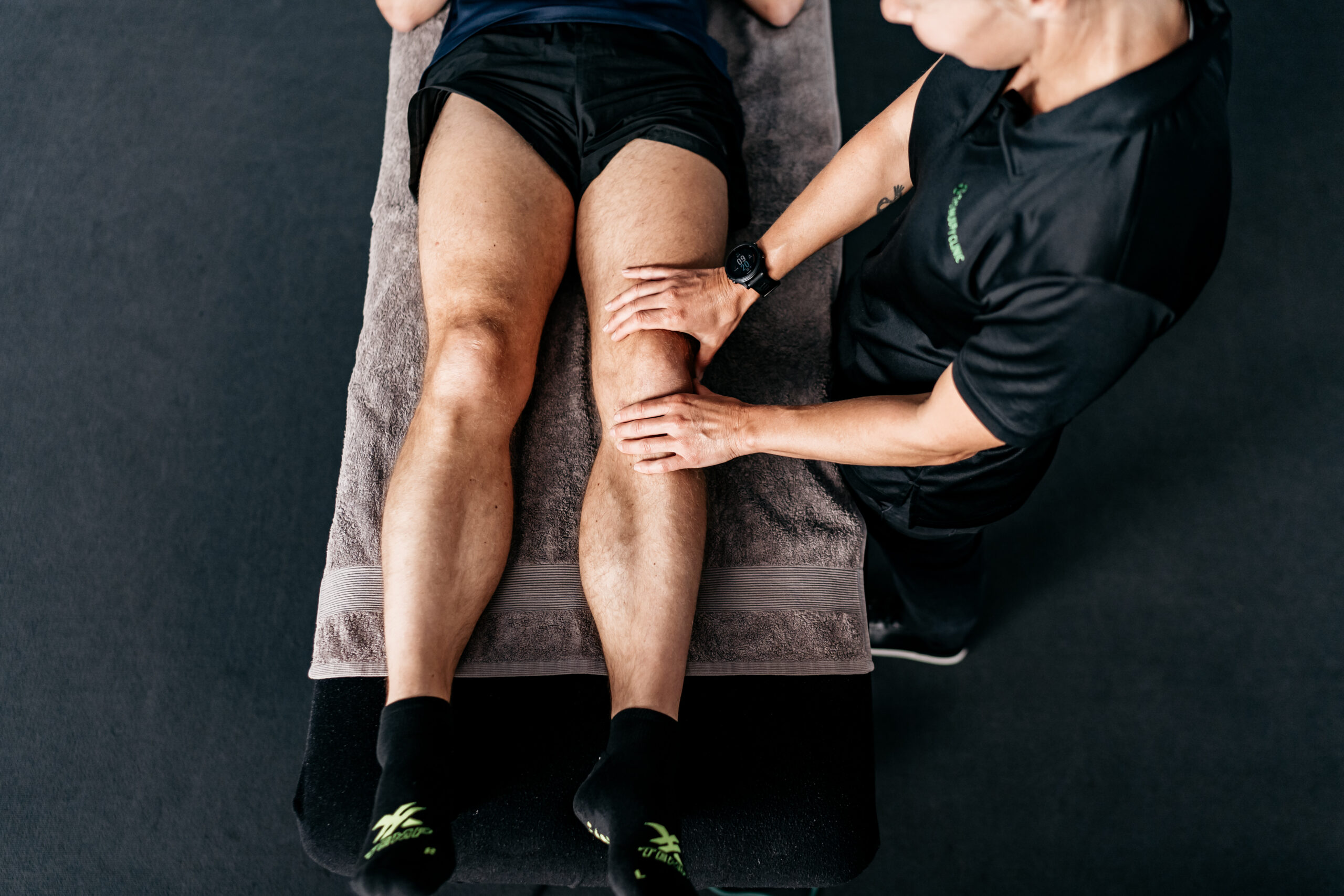
Want to learn more about itb syndrome?
Lachie Cooper, Physiotherapist, has answered some common questions.
Check them out below!
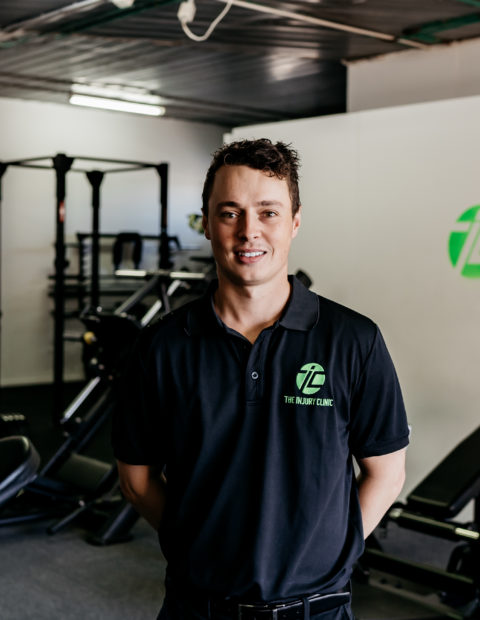


What is ITB syndrome?
Iliotibial (ITB) syndrome is a common cause of lateral knee pain in runners, with a prevalence as high as 17%. The ITB is a thick band of connective tissue which runs down the outside of the thigh. It’s role is to assist in stabilising the hip and knee during movement. ITB syndrome is an atraumatic overuse injury typically characterised by pain on the outside of the knee. It is often referred to as ITB friction syndrome, however more recent evidence suggests that this condition is the result of compression of the ITB on the femur when the knee is flexed.
Can I stretch my ITB?
The ITB cannot be stretched like other tissues such as muscle. The ITB is a thick band of connective tissue which plays an important role in stabilising the hip and knee, and transferring force from musculature. As such, it’s role would become redundant if it were able to be stretched out like muscle tissue. Studies demonstrate that foam rolling and stretching does not impact on ITB stiffness.
What are the risk factors for ITB syndrome?
Risk factors for ITB syndrome include:
- Biomechanics (i.e., narrow step width, increased hip adduction in stance, increased step length, decreased lumbopelvic control)
- Decreased hip abductor strength
- Significant leg length discrepancy
- High training load
- Sudden increases in training load
- Training incorporating significant downhill running
How do you manage ITB syndrome?
Management of ITB syndrome should be multimodal. In the early stages, a decrease in training load and soft tissue techniques may decrease irritability of the condition. For long term management, strength training, graded running programming and gait retraining are important considerations. If indicated, some patients may have a corticosteroid injection to assist with pain, although this should not be a part of routine management.
How should I go about gym based rehabilitation for my ITB syndrome?
It’s difficult to say, as each individual will be quite different. I usually work through a process beginning with reducing irritability prior to commencing strength training. Strength training is usually directed Early stage strengthening exercises
How do you prevent it from occurring?
Many runners have risk factors for the development of ITB syndrome, however will not develop it until they have a training error. A training error usually includes a rapid increase in running load, such as large increases in distance, introduction of significant hill work and intensity of speed sessions. We also commonly see runners try to return from experiencing ITB syndrome too rapidly. The body requires time to recover and develop tolerance to training loads.
As such, the number one advice for runners is to be sensible with their running load. It helps to look at the previous 4-6 weeks of training as a gauge of how much running to plan for the following week. When adding or increasing hills or speed work, I often keep a runner’s overall weekly distance relatively similar to avoid injury.
Schedule your next visit
If you’re interested in booking an appointment with one of our team members, contact our clinic today and we’ll be happy to find time for a consultation.
Schedule ConsultExplore our physiotherapy services
Musculoskeletal
Physiotherapy
At The Injury Clinic Physiotherapy, we work closely with our clients to get them back doing the things they love as soon as possible.
Sports
Physiotherapy
The Injury Clinic Physiotherapy works with recreational to elite athletes to keep them injury free and achieving their goals.
Dry
Needling
All physiotherapists at The Injury Clinic Physiotherapy are qualified and experienced in dry needling as a treatment technique.
Running Related Injuries
Physiotherapists at The Injury Clinic Physiotherapy have a special interest in the diagnosis and management of running-related injuries.
Women's Health
Physiotherapy
We have physiotherapists with a special interest in Women's Health, including pre and post partum presentations. Let us work with you to stay fit, active and healthy.
Pre & Post-Operative
Physiotherapy
Physiotherapists at The Injury Clinic Physiotherapy work closely with surgeons to ensure best outcomes post surgery.
Injury Q&A
Our clinicians have been answering all your questions!
Running Analysis
The goal of a running analysis is to identify aspects of your technique that may be contributing to injury or impacting on efficiency.
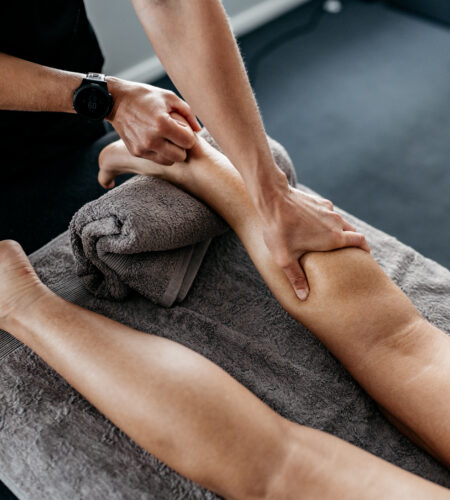

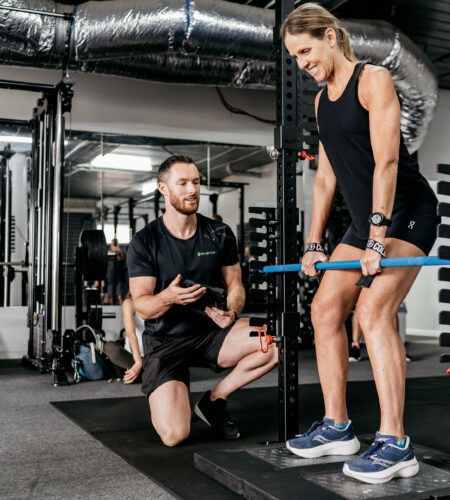

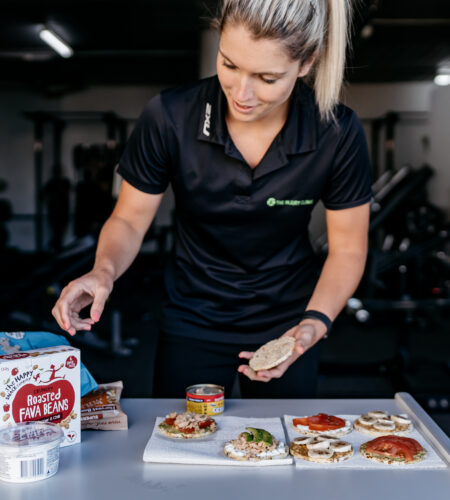

Schedule your next visit
If you’re interested in booking an appointment with one of our team members, contact our clinic today and we’ll be happy to find time for a consultation.
Schedule Consult